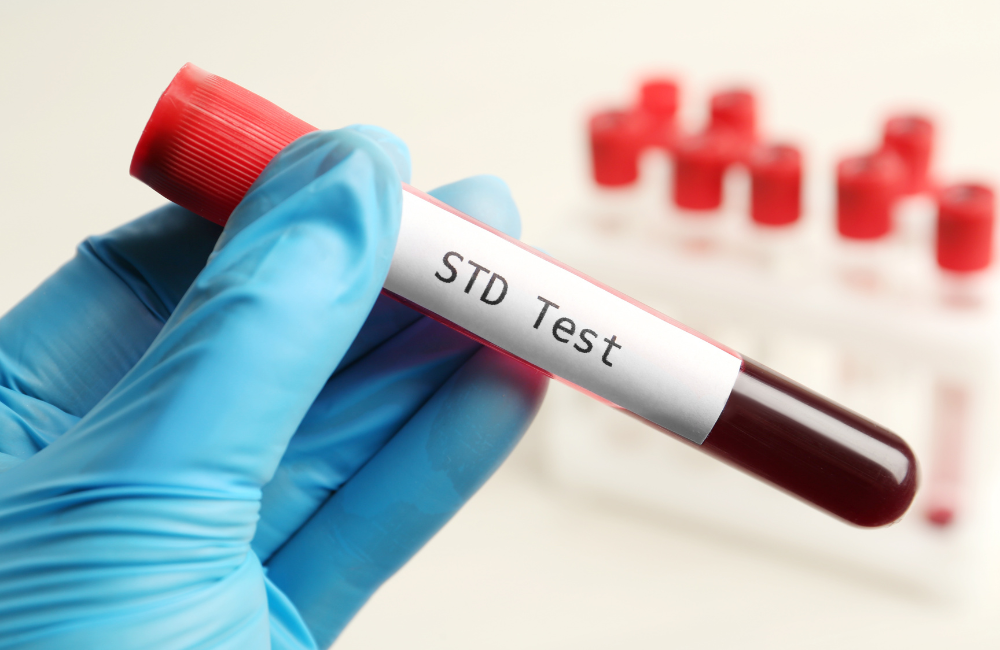STD testing involves a simple and confidential process to check for sexually transmitted infections. Usually, it includes a physical exam, blood tests, urine samples, or swabs from the genital area. See more: https://www.drbenmedical.sg/std-testing-singapore-screening/.
Some tests can detect multiple infections at once. If you suspect that you may have been exposed to an STD, we strongly recommend seeing a specialist for STD testing in Singapore because early detection and treatment can prevent serious health issues and reduce your risks of spreading the infection to others.
But you shouldn’t only be seeking STD testing in Singapore when you suspect that you may have been exposed to a disease. If you’re sexually active, you may want to get regular testing to ensure peace of mind and promote overall sexual health.
On this page, we address the Frequently Asked Questions about STD testing in Singapore. But first;
How can I tell if I have an STD Without going to the Doctor?
First off, many STDs have no symptoms. This means you can have an STD without even knowing it and infect your partner during sex.
So if you suspect that you may have contracted an STD, the only way to know for sure is to get tested. Alternatively though not recommended, you can tell if you have an STD without going to the doctor by paying attention to changes in your body. Symptoms of a sexually transmitted infection (STI) can include:
- Pain when passing out urine
- A rash that may show up around your genitals, rectum, and mouth
- Itchy in or around your genitals or anus
- Unusual discharge from your vagina, penis, or anus
- Lumps or skin growths that may show up around your genitals or the anal region
- Unusual vaginal bleeding
- Warts in your mouth or throat. This is quite rare though
Many STIs can be asymptomatic which means that you might not notice any signs. Also, some STIs can take up to 7 weeks after you have unprotected sex to show up on a test.
If you do not have symptoms, you may need to wait 7 weeks before seeing a specialist for STD testing in Singapore. While observing symptoms can give you a clue, it is not a substitute for professional medical advice.
Importantly, if you do notice symptoms, keep track of when they started and how they progress. This information can be useful when visiting a specialist for STD testing in Singapore as you will surely be asked about any changes you have noticed in your system.
STD Testing in Singapore FAQs
Many people who visit our practice for STD testing in Singapore have loads of questions to ask—which is a good thing. To help you prepare for a visit, we answered some of the most frequently asked questions below so you at least have an idea of what STD testing is and what you can expect. See the FAQs below;
I. Can you get tested for an STI at a pharmacy?
Yes, many pharmacies offer at-home STI testing kits. With these kits, you can collect samples at home and then send them to a lab for analysis. Some pharmacies also provide rapid tests for certain STIs like HIV. For accurate results, always ensure the kit is from a reputable source.
II. Is there a test to see if you have an STD?
Yes, there are several tests available to diagnose STDs. These include blood tests, urine tests, and swabs of affected areas. The type of test depends on the STD being tested for. When contemplating STD testing in Singapore, please consult a specialist to help you determine the appropriate test for your symptoms or concerns.
III. Is syphilis common in Singapore?
Yes, syphilis is relatively common in Singapore. Approximately 1,500 new cases of syphilis infections have been reported annually over the last five years. Regular testing and early treatment are crucial to control the spread of syphilis and other STDs.
IV. What are 5 common symptoms of an STD?
Common symptoms of STDs include;
- Unusual discharge from the penis or vagina
- Pain or burning sensation during urination
- Itching or irritation in the genital area
- Sores, bumps, or rashes on or around the genitals
- Pain during sexual intercourse
V. How long do STDs take to show up?
The time it takes for STD symptoms to appear varies. Some STDs show symptoms within a few days. And, there are those that may take weeks or even months. For example, chlamydia symptoms typically appear within 1-3 weeks, while HIV can take several weeks to months.
VI. What STDs are not curable?
Some STDs are not curable but can be managed with treatment. These include:
- HIV: Managed with antiretroviral therapy
- Herpes: Managed with antiviral medications
- HPV: Some strains can cause genital warts and are managed through treatments
While these STDs are not curable, early diagnosis and treatment can help manage symptoms and reduce the risk of transmission.
VII. Is it still possible to get an STD if both partners are clean?
If both partners are confirmed to be STD-free and have no other sexual partners, the risk of acquiring an STD is extremely low. However, it’s important to consider past sexual history and testing accuracy.
VIII. What STD has no signs?
Some STDs can be asymptomatic. Being asymptomatic means that they show no signs or symptoms. Chlamydia and gonorrhea often have no symptoms, especially in women. This is why regular testing is crucial, even if you feel healthy, as untreated STDs can lead to serious health complications.
IX. How long can an STD stay dormant without symptoms?
An STD can stay dormant for varying periods, depending on the infection. For instance:
- HIV: Can be dormant for several years before symptoms appear
- Syphilis: Can remain latent for years without symptoms
- Herpes: Can remain dormant and reactivate periodically Regular testing and medical check-ups are vital to detect and manage these infections early.
X. Who is most prone to STDs?
Anyone sexually active is at risk of contracting an STD. However, certain groups are more prone to STDs, including;
- Young adults aged 15-24
- Individuals with multiple sexual partners
- People who have unprotected sex
- Those with a history of STDs
The Bottom Line
Timely STD testing is your best bet for managing most STDs and staying healthy. If you have concerns, please see a specialist. If you’re in Singapore, there are many specialist clinics that are ready to help.
Dr. Ben Medical is one of the best options. Dedicated to patient sexual health and well-being, the team is trusted for expert care, confidential services, and accurate results. To schedule an appointment, call or visit Dr. Ben Medical at;
Dr. Ben Medical @ Tanjong Pagar | ED Treatment | STD Treatment Singapore
160 Robinson Road, #03-09,
SBF Center, Medical Suites,
Singapore 068914



